Kidzonia Commits
Kidzonia Commits
At Kidzonia, we ensure that children are presented with abundant opportunities to engage in activities fostering comprehensive learning. Employing developmentally appropriate methods, we nurture and support the growth of each child. The early years mark a period of rapid development for preschoolers. Language proficiency expands, motor skills advance, cognitive abilities strengthen, and social-emotional skills enable increased interaction with others. Our ‘DISCOVER’ curriculum is meticulously designed to align with the developmental stages of children. It is tailored to be age-appropriate, considering the typical growth patterns in areas such as social, emotional, cognitive, and physical domains, ensuring a well-rounded educational experience for every child.
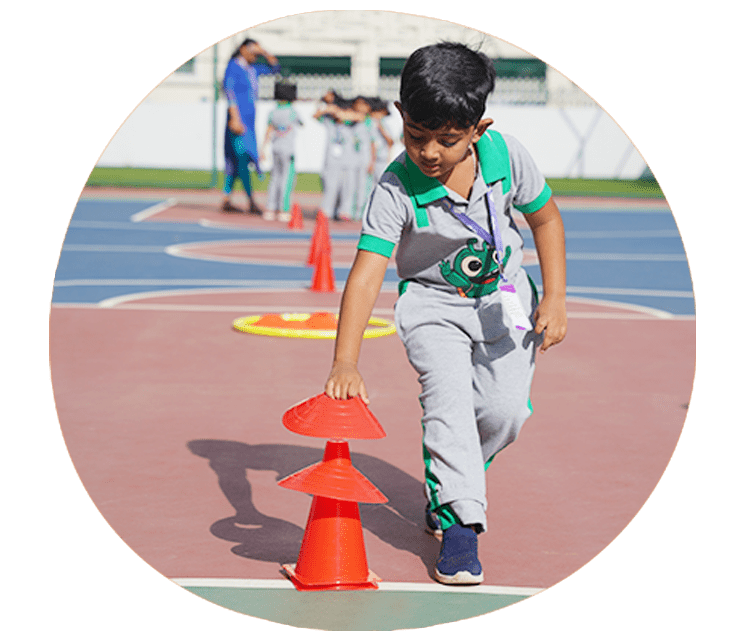
Physical Development
The physical domain of development refers to a child’s muscle and movement development. At Kidzonia, we strive to improve children’s gross (large) and fine (small) motor skills. We make certain that our children run, jump, hop, dance, play regular group games, rough and tumble play, outdoor activities, water play, sand play, and use slides, swings, green space, and open space. We also offer special martial arts classes to help them develop their gross motor skills. Fine motor skills are developed through activities that require eye-hand coordination. These activities lay the groundwork for future skills such as writing, eating, painting, and so on. Lacing beads, finger painting, clay moulding, pouring, scribbling, and other activities are popular among children.
Cognitive Development
Cognition, the process of thinking, involves learning and applying logical reasoning. It encompasses various abilities, including memory retention, problem-solving, and reasoning. At Kidzonia, we engage children in activities specifically designed to enhance their logic and reasoning skills. Through comparisons, measurements, puzzle-solving, sensory exploration, recall exercises, and sharing experiences, our young learners actively participate in activities crucial for their cognitive development.
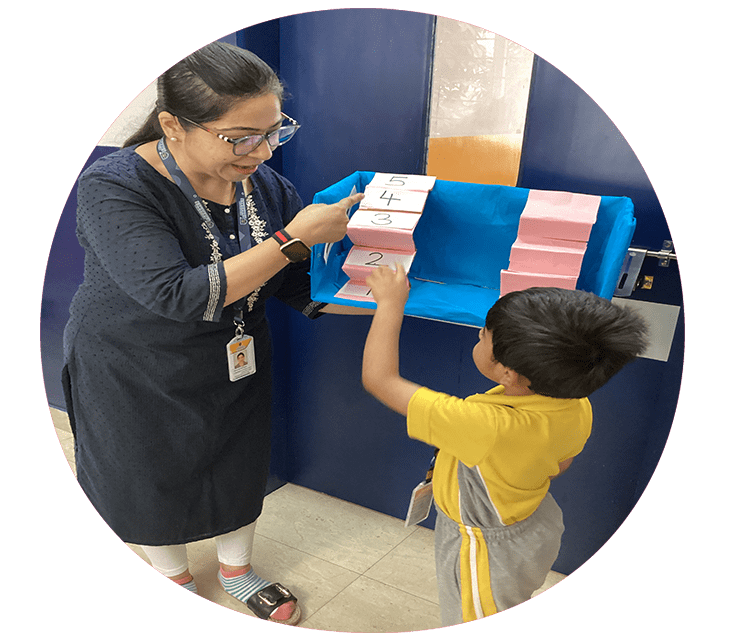
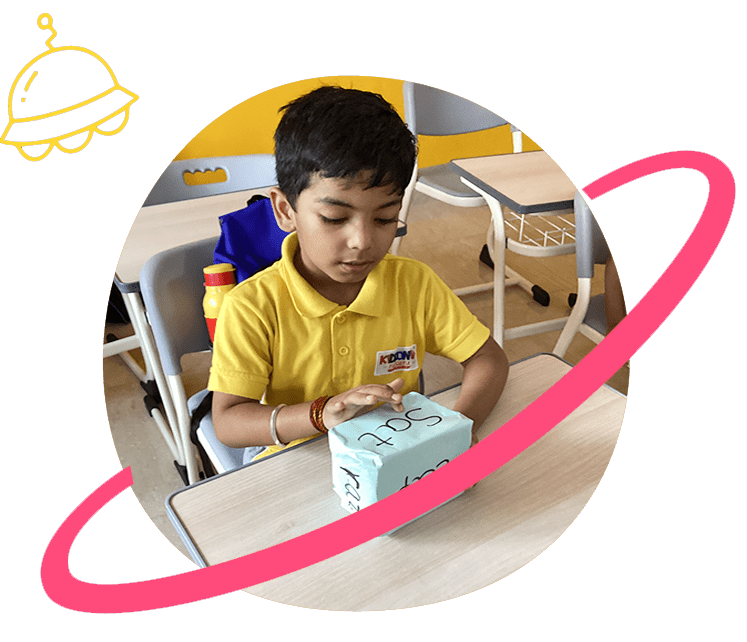
Language & Literacy Development
In India, a country rich in linguistic diversity, children enter classrooms equipped with varying language proficiency in English, Hindi, or their regional dialects. Mastering a language involves grappling with four essential language skills—listening, speaking, reading, and writing—as well as understanding the language system, encompassing sound structures and vocabulary. It is crucial for children to integrate these elements effectively into their communication once they have mastered them. At Kidzonia, we comprehensively address all facets of language skills, offering our students numerous opportunities to learn from a multilingual perspective. Teachers captivate their interest through a plethora of stories, rhymes, and interactive activities, fostering speaking and communication skills. Additionally, our students are proficient in reading and writing in both English and Hindi.
Personal, Social, and Emotional Growth
Even if a child excels in advanced mathematics or speaks multiple languages, their ability to manage emotions, cope with stress, and resolve conflicts is paramount. Without these essential skills, other achievements become less meaningful. At Kidzonia, we prioritise personal, social, and emotional development, recognising its fundamental importance. We offer opportunities for personal growth by teaching table manners, fostering independence in daily activities, and encouraging effective communication and sharing. Collaborative activities, such as tidying up toys together and participating in group games at learning centres, significantly enhance children’s social and emotional skills.
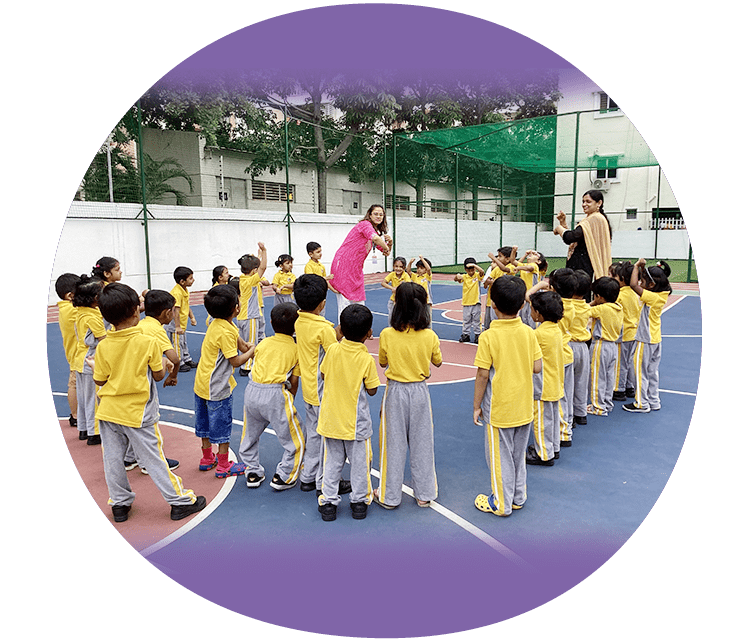
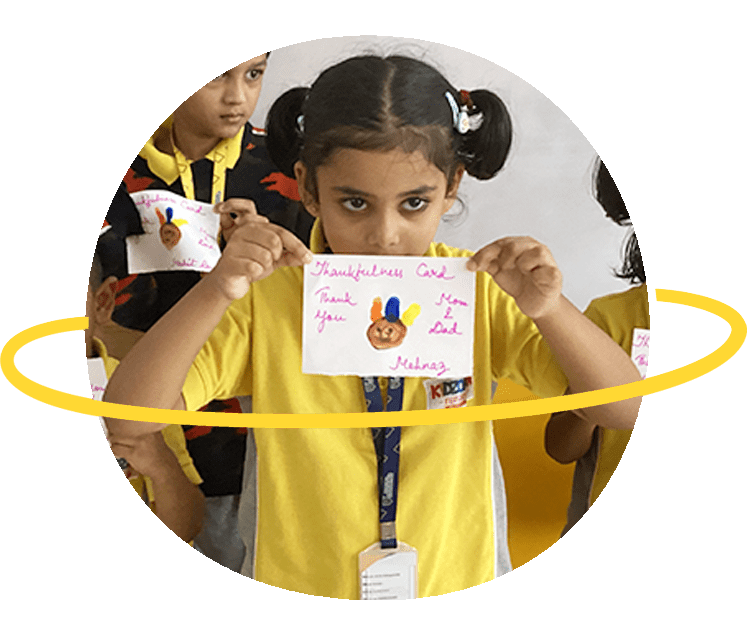
Character and Essential Life Skills
Instilling values and life skills is integral to a child’s growth. At our preschool, students explore empathy and helping others through engaging stories, discussions, and activities. Our dedicated teachers guide students through thoughtful decision-making tasks, encouraging them to weigh the pros and cons before making choices and allowing them to learn from the outcomes. Children are introduced to the importance of ‘magic’ words—sorry, please, and thank you—essential tools that aid them in navigating diverse situations. Through various group activities, we foster sharing and nurture empathy skills among our students.
Language Development in Early Childhood
Linguistic development in early childhood refers to the crucial phase during which children grasp the skills to comprehend and express themselves in a foreign language. Given that English uses letters to represent sounds, mastering letter-sound relationships is vital. To facilitate proper pronunciation and reading skills, we focus on teaching phonic sounds and phonics. Children delve into understanding the distinct sounds associated with each letter and how rearranging letters alters a word’s meaning, fostering their language proficiency.
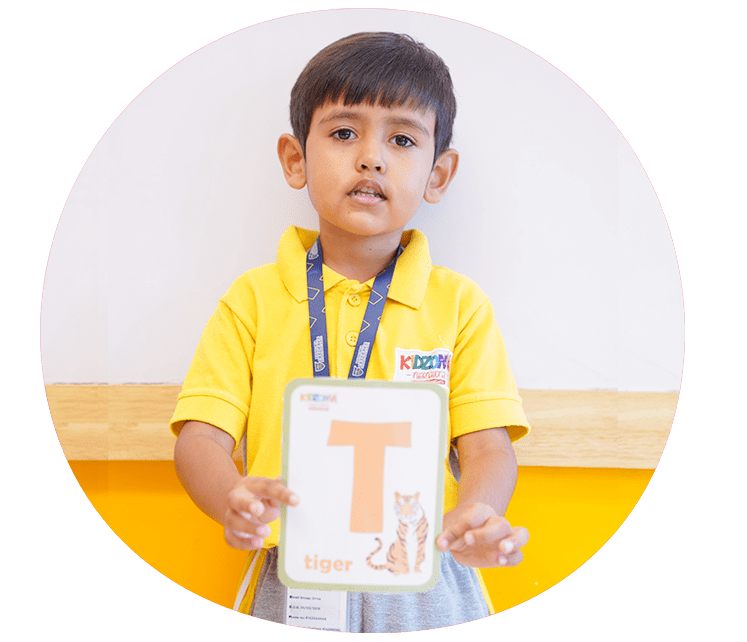

Fostering Creativity
Inherent in every child, creativity blossoms through encouragement and skill-building. Preschoolers’ creative development involves nurturing their vivid imagination and honing their abilities. Creativity and divergent thinking emerge when children apply their existing skills, refine them, and explore entirely new abilities within areas of interest. At Kidzonia, we broaden creative opportunities beyond traditional art and craft activities. Children are encouraged to explore various avenues of self-expression, such as learning to play the piano, engaging in clay modelling, and participating in role plays. These diverse experiences empower them to express their creativity in unique and meaningful ways.
